Research
Biological psychology and cognitive neuroscience
Combining modern tools of neuroscience with psychological tools to analyse behaviour
Ever wondered how the brain processes the flood of input constantly streaming in from the environment?
What about how perception is translated into action? And how does our brain produce memories, emotions and conscious experiences?
Our research combines the modern tools of neuroscience (brain imaging, brain stimulation, and recording of brain electrical and haemodynamic activity) with subtle psychological tools to analyse behaviour. We’re interested in healthy functioning as well as the impact of neuropathology on cognition, perception, emotion and action.
Research laboratories
Biological psychology and cognitive neuroscience researchers work across the following laboratories:
- Attention and Human Behaviour Laboratory
-
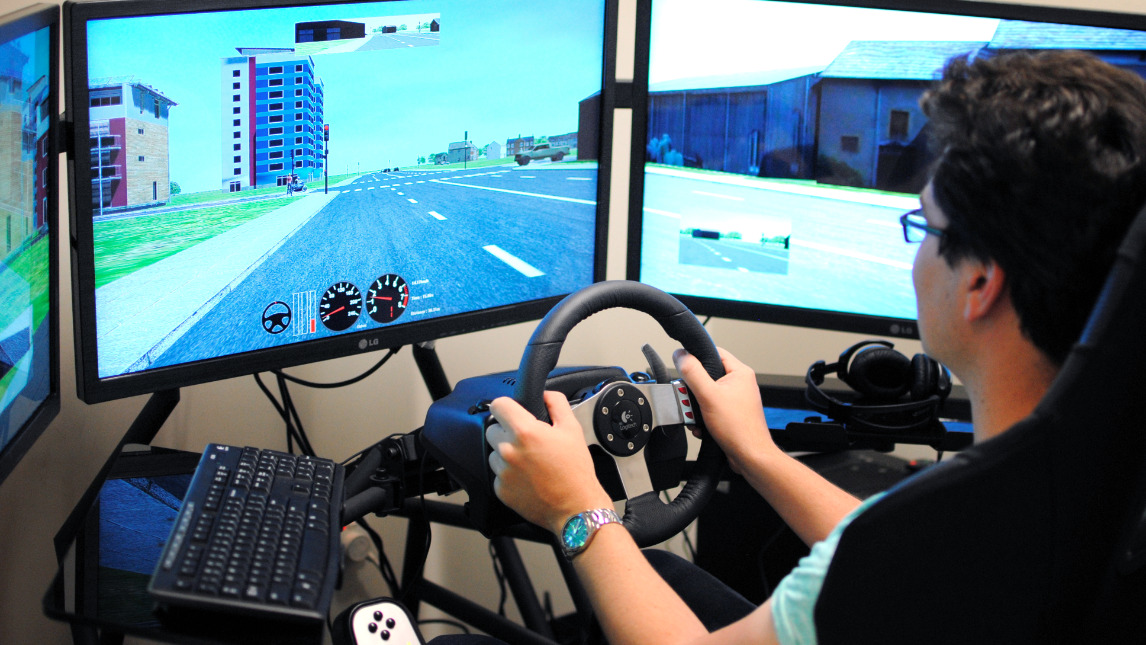
Our research is at the interface between key human cognitive abilities, such as attention and multitasking, and human behaviours across a variety of situations.
Over a century of 'basic' experimental research has taught us a lot about human cognition and perception, as well as their underlying neural mechanisms. However, we know much less about how these abilities differ across individuals and groups, or how these abilities influence everyday behaviours, like driving, or performance in specialised jobs, like the military or air-traffic control.
The goal of our work is to answer these questions by breaking through traditional divides between basic and applied research, and to focus on building a reciprocal relationship in which basic research can guide practical questions, and practical outcomes can give new insights into basic processes.
Attention and Human Behaviour LaboratoryContact us
- Professor Troy Visser (Lab director)
- Centre for the Advancement of Research on Emotion (CARE)
-
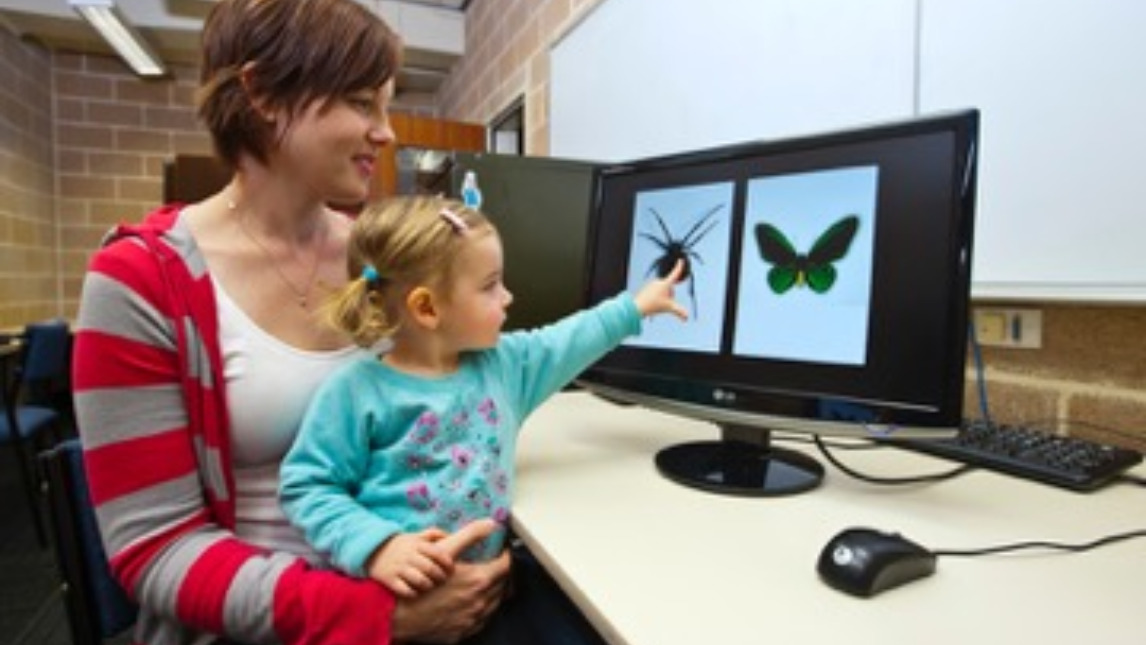
Clinical theorists have attributed emotional disorders to cognitive idiosyncrasies, while cognitive theorists have developed models which suggest emotional states will be associated with pervasive information processing biases throughout the cognitive system.
Both clinical and cognitive models of emotional disorders predict the existence of processing biases favouring emotionally congruent information in attention, interpretation, and expectancies.
Researchers at the Elizabeth Rutherford Memorial Centre for the Advancement of Research on Emotion (CARE) use cognitive-experimental paradigms to test hypotheses arising from these models combining a focus on cognitive mechanisms with inter-disciplinary research to advance our understanding of emotion.
Key objectives and focus areas of the centre include:
- Bringing together world leaders in different research areas to establish new innovations in the understanding of emotion.
- Investigating patterns of selective information processing (or cognitive biases) that may underpin mental health problems and resilience, and examining the causal contribution of these biases to anxiety, worry, and adaptive functioning in the face of adversity.
- Evaluating recent developments in cognitive bias modification (CBM) techniques to contribute to the emotional well-being of the Australian community.
Contact us
- Director: Associate Professor Lies Notebaert
- Academic Staff: Dr Ben Grafton, Emeritus Professor Colin MacLeod
- Memory and Cognition Laboratory
-
Research in the Memory and Cognition Laboratory investigates human memory and reasoning, using mainly behavioural experimentation.
The main topic of interest is misinformation: How does incorrect information affect memory, reasoning and decision-making even after it has been corrected? What individual (cognitive, social, affective) factors influence people’s misinformation susceptibility? What aspects of the information environment play a role? How can effective interventions be designed?
Contact us
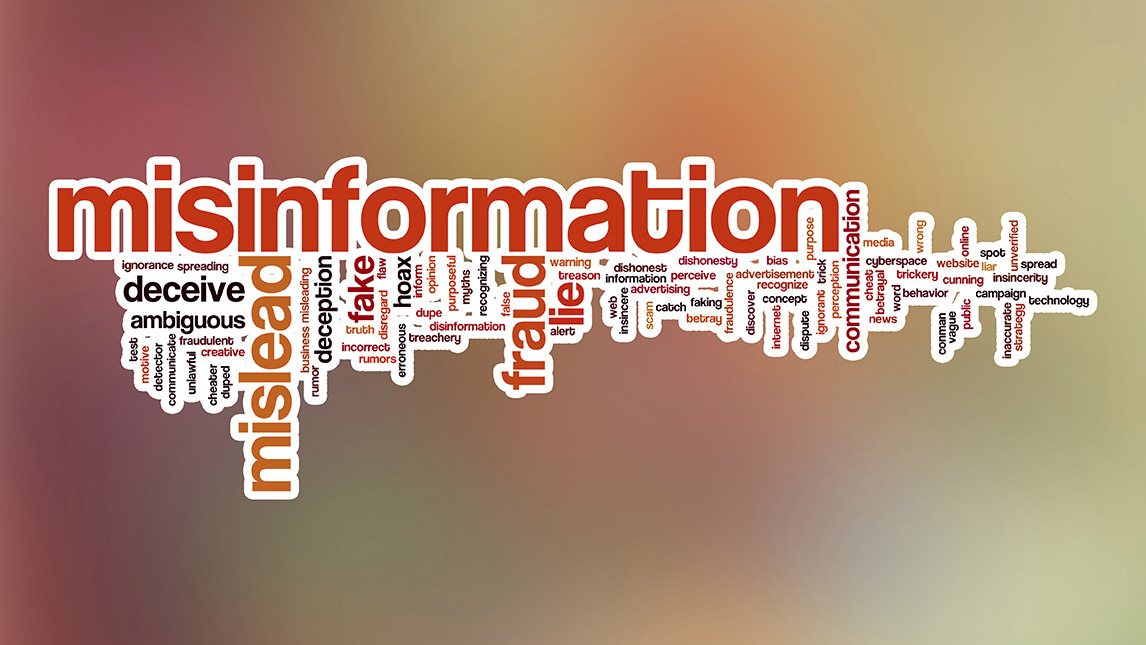
- Person Perception Lab
-
Our research program has significantly contributed to understanding which perceptual, cognitive and neural mechanisms are crucial for person perception.
This often involves studying faces, as they provide information about the identity, age, sex, race, attractiveness and mood of other people, but also involves studying the perception of bodies and voices.
Methodologically, the lab uses a variety of psychophysical, behavioural, genetic modelling, and cognitive neuroimaging techniques.
The research is interdisciplinary, linking many aspects of psychology (e.g., social, clinical) with other disciplines such as computer science (e.g., automated recognition), law (e.g., eyewitness testimony) and neurobiology (e.g., comparative models).

Research Questions:
- Why can't some children and adult recognise facial identity?
- Can training improve person perception skills?
- How do people perceive, interpret and respond to facial expressions?
- How do people respond to virtual humans?
- How does neurodiversity or brain injury affect person perception?
- How does person perception develop throughout childhood, and across the lifespan?
- How do people form facial expressions of trustworthiness and approachability and are these first impressions primarily shaped by genes or experience?
- How can we reliably measure individual differences in face perception ability, and what is this variation in ability linked with?
- What is the role of visual attention in person perception?
Prosopagnosia Research
Interested in participating in research?
Our current understanding of prosopagnosia is only limited, and further research is needed to clarify the nature of this rare condition. If you or any of your family members are experiencing face recognition difficulties, and if you're interested in participating in research, please register with us.Australian Prosopagnosia Register
For more information about prosopagnosia and our current research see below:
Participant Information and Consent Form (PDF 68KB)
- Sensory Neuroscience Attention and Perception (SNAP) Laboratory
-
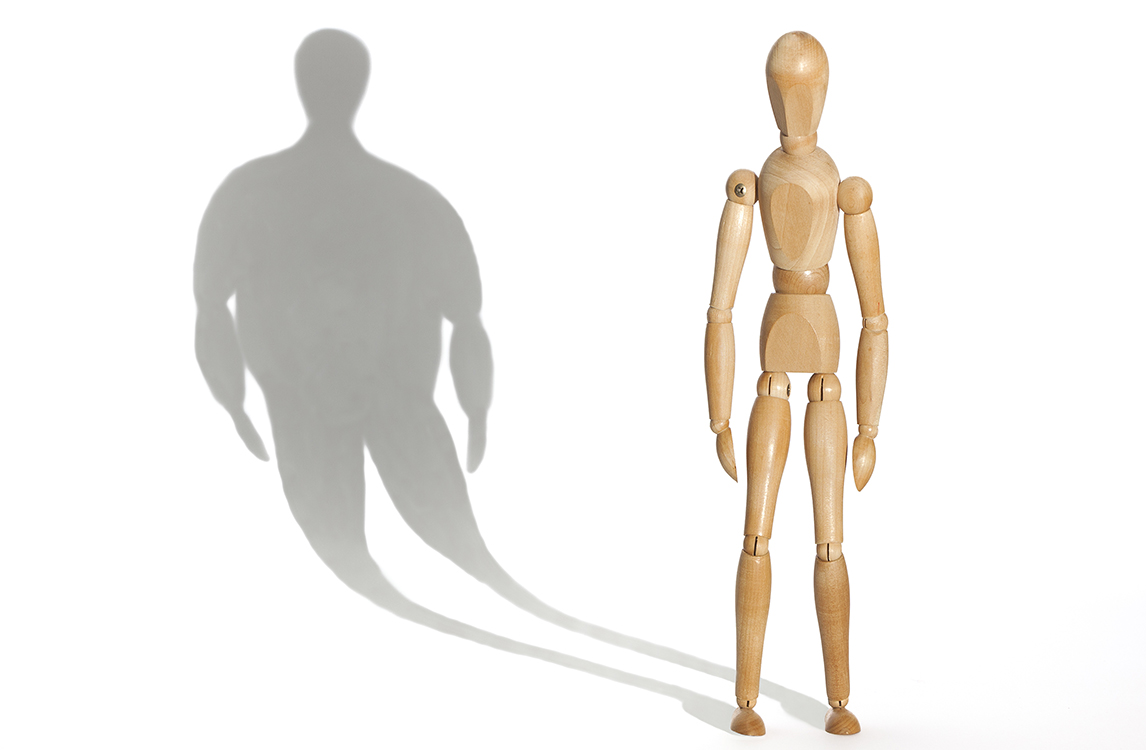 Research interests within the SNAP Lab involves three distinct arms – visual perception, clinical research and sensory neuroscience. Current projects in each of these areas are described below.
Research interests within the SNAP Lab involves three distinct arms – visual perception, clinical research and sensory neuroscience. Current projects in each of these areas are described below. Enquiries about any SNAP Lab projects below should be directed to head of SNAP lab Associate Professor Jason Bell.
Perception research
Research in this area considers how the human visual system processes shapes and objects for recognition. Recognition is accomplished through the coordinated activation of distinct brain regions. Projects seek to discover what information is represented at each stage of processing.
Current research interests include:
- Studying the role of hemispheric specialisation in the processing of symmetry.
- The time course of visual perception. How fast and for how long do discrete visual mechanisms process content?
- The properties of the mechanisms processing visual number.
- Serial dependencies in visual perception. How and when is past information used in the processing of the present?
Clinical research
Dr. Jason Bell is interested in studying abnormalities of perception within particular groups. Together with associate professors Elizabeth Rieger (ANU) and Dr Susan Byrne (UWA), they are undertaking research to understand the relationship between biases in perception and or attention, and eating disorder symptomology, or obesity.
Current research interests include:
- Attentional biases to high and low calorie foods or to particular body shapes.
- Biases in the perceived healthiness of foods, or in the perceived size of female bodies.
- Attentional retraining procedures to reduce or null maladaptive processing strategies in relation to the above visual cues.
Together with Professor Carmela Pestell (UWA), they are conducting studies to better our understanding of the relationship between ADHD and altered time perception.
Current research interests include:
- studies retraining timing abilities
- studies examining the role of emotional regulation in ADHD symptomology and time perception
Sensory neuroscience
Understanding functional specialisation in the brain is a fundamental goal of neuroscience and psychology. The lab currently offers opportunities to study the effects of neurosynchronisation and of non-invasive cortical stimulation on perception and behaviour.
Current research projects and collaborations are utilising:
- Neuroscience techniques such as transcranial direct current stimulation, or tDCS to investigate the correlates of attention and perception.
- Neurosynchronisation techniques to understand the role of rhythmic brain activity in various aspects of attention, perception and action, with a focus on theta and alpha bands.
- Sleep Psychology Laboratory
-

Sleep is an absolutely vital human function, yet sleep disturbance and sleep disorders are highly prevalent. Among other consequences, sleep disturbance increases the risk for many other psychological disorders (e.g., depression and anxiety). Broadly, our research group aims to i) identify the causes and consequences of inadequate sleep, ii) develop and evaluate novel treatments for sleep problems across the lifespan, iii) evaluate the effectiveness of sleep treatments in various populations and iv) elucidate mechanisms linking sleep with mental health disorders and symptoms.
Recent interests include:
- Identifying risk/protective factors for adolescent sleep
- Understanding the sequalae of inadequate sleep in young people
- Developing and evaluating novel sleep interventions (e.g., a brief sleep intervention for university students)
- Investigating the effectiveness of CBT for insomnia and bright light therapy in various populations including, psychiatric patients, children and young people, and older adults
- Understanding the positive impact of sleep treatments on mental health outcomes, and cognitive function and brain health
- Identifying processes that link improvement with sleep with improvement in mental health disorders and symptoms
Contact Us
- Perception, Emotion, Cognition, Ageing, & Neuroscience (PECAN) Laboratory
-
In the PECAN lab, we investigate questions at the intersection of Perception, Emotion, Cognition, Ageing, and Neuroscience (PECAN). And we’re “nuts” for science!
At any given moment, the amount of information bombarding our senses is more than we can possibly process. This means that we can only pay attention to and remember small slices of our environment. How do we decide what to prioritise?

Our emotional reactions are one piece of the puzzle. We often prioritise emotionally powerful information so much that it can keep us from seeing and remembering other things (even other things that we look right at).
Age is another piece of the puzzle. As we grow older, our attention and memory processes change, as does the role of our emotions.
We use behavioural, eye tracking, and neuroscience techniques to study emotion-cognition interactions, and how these are altered by individual differences such as age.
Major research questions in our lab include:
How are emotional stimuli prioritised in our attention and memory and how does this affect our processing of other stimuli in the environment?
Are there ways to heighten or diminish emotion’s influence on cognitive processing?
What drives the age-related positivity effect, in which older adults prioritise more positive and less negative information compared to younger adults?
How do arousal and selective attention change with age and Alzheimer’s disease?
Why and how do certain individuals attend and remember certain stimuli more than others?
Do ways that we interact with information alter how we attend and remember it?
Lab director
- Learning, Individual Development, and Life (LIDL) Lab
-
LIDL Lab investigates individual differences in human potential and achievement. We use behaviour, psychophysics, and neurophysiology to understand why some people are more efficient learners, and how this relates to mental health and life outcomes.
We investigation low- and high-level learning (low-level = perceptual or statistical learning, and attention; high-level = reading and academic achievement). For example, dyslexia—a specific developmental learning difficulty with reading acquisition—is linked with a different cognitive and perceptual capacities, e.g., for recognising repeated tones, as well as atypical cerebral lateralisation (e.g., the right hemisphere of the brain is more likely to be involved in language processing, whereas this is the left in most people). Dyslexia is also linked with poorer academic achievement, as well as anxiety and poorer self-esteem (i.e., social and emotional challenges).
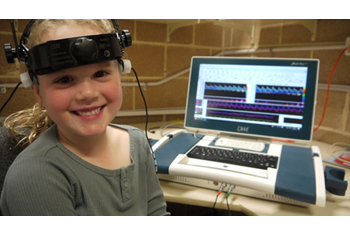
Here are some example research questions we pursue:
- Why does attention and perception relate to reading abilities? For this we use paradigms like the attentional blink and perceptual anchoring (behavioural psychophysics)
- How does cerebral lateralisation of verbal and non-verbal information processing relate to real-world behaviours like reading and educational outcomes? For this we use EEG and functional transcranial Doppler ultrasound.
- Do mental health traits and coping-strategies influence educational engagement (e.g., university retention) for poor readers? For this we use mixed methods: surveys, behavioural tasks, and interviews.
These projects inform our theoretical understanding of how the mind and brain adapt to the environment, which in turn has implications for education and clinical practice.
The aim of LIDL Lab is to understand individual differences with the goal to improve outcomes, so we can all pursue our potential, living healthy and fulfilling lives.
 Researchers in LIDL Lab can be involved in INDiKids, a research program with a central goal of understanding Individual Neurocognitive Development in Kids and how this contributes to developmental change in cognitive, socioemotional, and educational abilities. INDiKids brings together a group of researchers from the School of Psychological Science interested in the neurocognitive basis of typical development and developmental disorders. INDiKids hosts a children’s research program each year in which children attend UWA to take part in a range of research studies embedded within an action-packed day of games and activities! If you are interested in your child being involved, please contact us.
Researchers in LIDL Lab can be involved in INDiKids, a research program with a central goal of understanding Individual Neurocognitive Development in Kids and how this contributes to developmental change in cognitive, socioemotional, and educational abilities. INDiKids brings together a group of researchers from the School of Psychological Science interested in the neurocognitive basis of typical development and developmental disorders. INDiKids hosts a children’s research program each year in which children attend UWA to take part in a range of research studies embedded within an action-packed day of games and activities! If you are interested in your child being involved, please contact us.
Contact Us
Collaboration
Telethon Kids Institute
Staff at UWA Psychological Science collaborate extensively with the Telethon Kids Institute in research on:
- biological and neuropsychological factors implicated in the development of disorders such as autism, ADHD, FASD and language disorders;
- early identification and intervention for these disorders;
- psychological and social outcomes for children with developmental disorders and their families, and;
- the experiences of diverse youth and how this impacts on their development.









